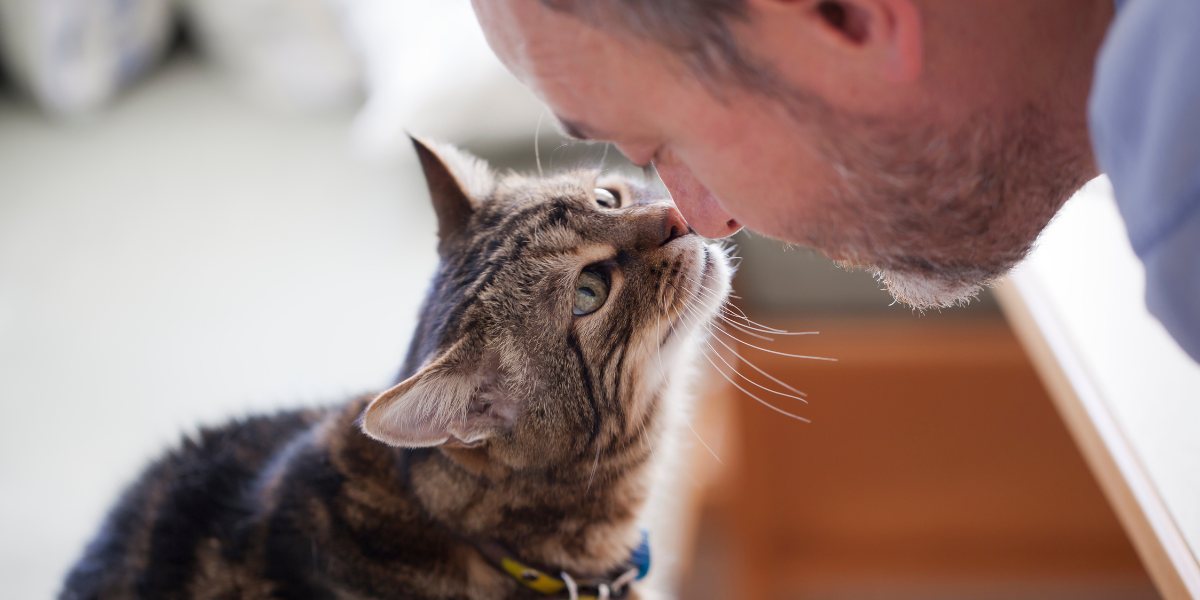
If you share your home with a cat or two, chances are, you have regular conversations with them. And this is not only a normal habit, but it’s also a healthy one, too. Despite the common misconception that cats are antisocial and prefer their alone time, this is hardly true.
Your cat's hearing is far superior to yours, roughly three times better than yours . As domesticated Pets, cats thrive on constant interaction with humans When you make the conscious effort to talk to your cat, not only are you showing them that they are appreciated, but also that you enjoy their companyKey Points
Your cat needs to be mentally stimulated, and not just through play and other forms of enrichment. So, if you’re wondering if cats like it when you talk to them, the answer is “yes”—and here’s why!
Communication With Your Cat Will Help to Strengthen Your Bond With Them.

There are many ways in which to bond with your cat, and talking to your cat each and every day is one of them.
There are many ways in which to bond with your cat, and talking to your cat each and every day is one of them. Cats can be aloof and solitary at times, but the truth is, that cats are social beings that crave attention. So, when you make the conscious effort to talk to your cat, not only are you showing them that they are appreciated, but also that you enjoy their company.
Cats are very good at learning their names—even the silly nicknames we give them. Your cat will likely reply with pleasant meows when you talked to them, which is the form of communication that cats rely on to speak to us.
Meows are meant for humans, and they will use these meows to express their feelings, desires, and thoughts.
What Tone of Voice Do Cats Like?
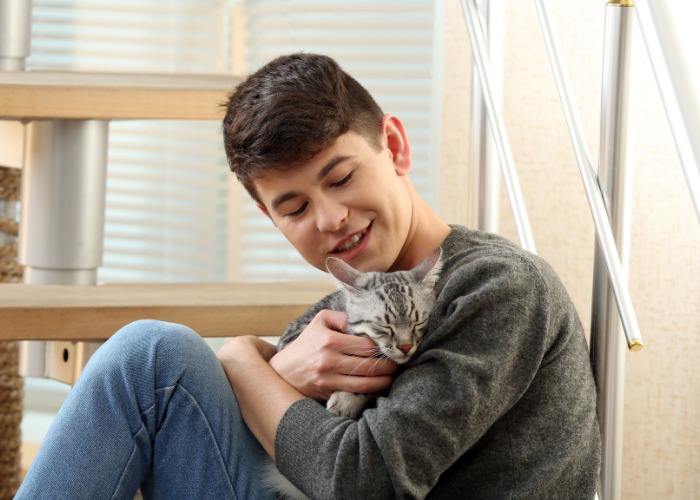
Don’t worry about sounding silly when you speak to your cat in a baby voice that might annoy humans because cats like when you talk to them in a baby voice!
Cats are an incredibly perceptive species. They use their eyes to observe our body language, but they rely most on their strongest sense to observe the world around them.
Also Read: What Your Cat’s Tail Can Tell You
Your cat’s hearing is far superior to yours—and even a canine’s. (It’s about three times better than yours if you were curious.) Your cat has studied your pitch and tone, and inflection in your voice through daily interactions. They know when you are sad, frustrated, angry, all of that. Basically speaking, your cat is your mood manager.
When you come to your kitty with a soft, sweet, baby-like tone of voice, this is when they know you are happiest, and, in turn, they prefer this tone of voice over all the others because it equates to happiness in their minds.
So, don’t worry about sounding silly when you speak to your cat in a baby voice that might annoy humans because cats like when you talk to them in a baby voice!
How Often Should I Talk to My Cat?

Be mindful about having conversations with your cat, and include them in major moments in your home so they can feel appreciated.
If you share your home with a person, you wouldn’t go a day without talking to them, right? So, then, why should this be any different with your cat?
Cats can become lonely easily, and they are not a solitary species that thrives on hiding themselves away. Cats are domesticated, meaning they thrive on constant interaction with humans and other pets in their homes (in most cases).
Be mindful about having conversations with your cat, and include them in major moments in your home so they can feel appreciated. After all, cats have feelings, and they want to know that you understand their sensitive nature.
Although you and your feline friend don’t speak the same language, this doesn’t mean that you can’t move past those barriers and truly understand one another.
Ways to Speak Meow to Your Cat
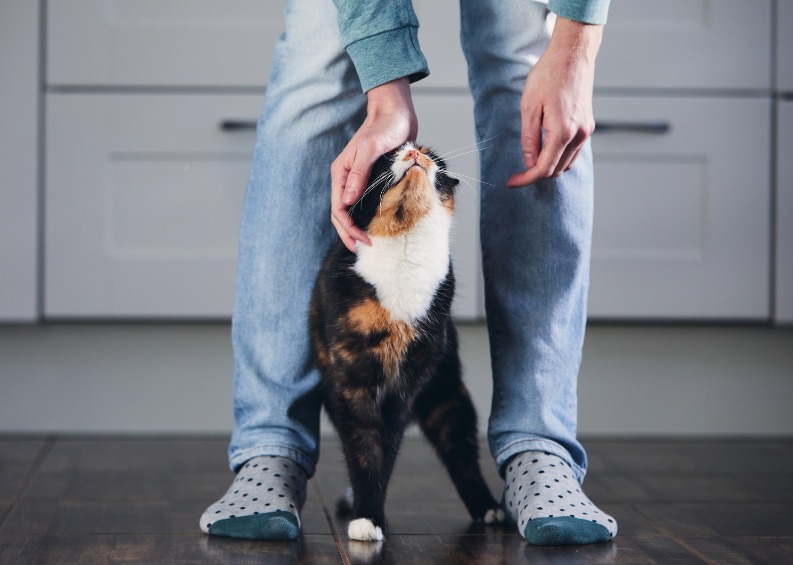
The best way to learn to speak meow to your cat is by closely observing them.
Of course, you can talk to your cat in your own native language, but you can also learn some clever ways to speak meow. Doing so will help them to know they’re loved.
The best way to learn to speak meow to your cat is by closely observing them. After all, our cats dedicate much of their days to observing us so that they can gather more information about us and report it back to the aliens. (Kidding!)
If you want to learn how to speak meow to your cat, here are some simple steps you can implement…
1. Watch for Those Slow Blinks.
It’s been proven that cats slow blink to one another, and this is also a way in which they communicate with humans, too. Cats will slow blink when they are relaxed and do not sense any danger. Cats are naturally guarded creatures, so for them to feel safe enough to close their eyes in your presence is a sign of ultimate trust.
2. Pay Close Attention to Your Cat’s Meows and Body Language
Cats are some of the most misunderstood species on the planet. They are the masters of hiding their feelings, but paying close attention to their body language and the tone of their meows can help you to learn a lot about them. And when your cat meows to you, perhaps try meowing in return to see their reaction.
Cats will meow for many reasons, whether to express wants, or to complain about something which is bothering them—such as their food bowl being empty. So, if your cat spends much of their day meowing to you, it shows you how much they enjoy verbally communicating with you.
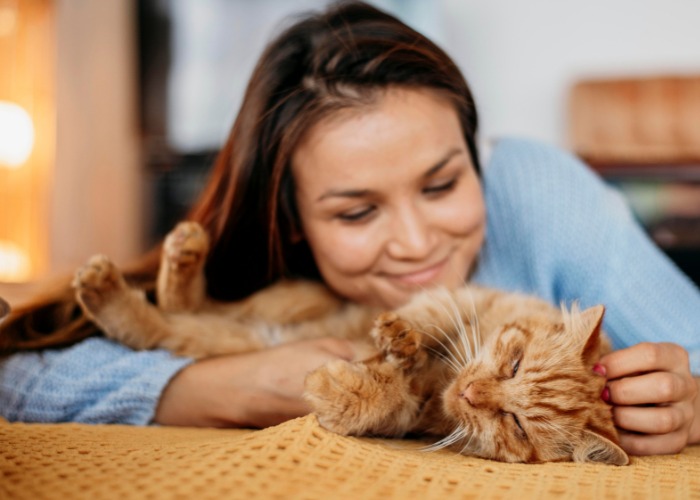
If your cat spends much of their day meowing to you, it shows you how much they enjoy verbally communicating with you.



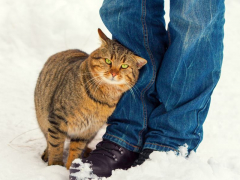

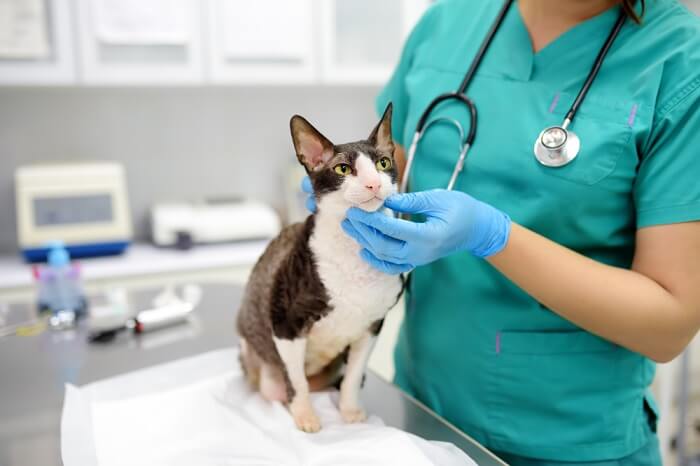


Also, from what I read, their eyesight is not good enough to distinguish faces. They recognize people by smell or the sound of their voice.
When I was younger, my mother had a female Burmese. I think she numerous kinds of Meow, which I’d learned the meaning of from context. These covered:
-Let me in
-I’m hungry.
-Also the ‘I’m still here and waiting to be fed’ which sounded really mournful.
-Warning meow, that she was about to jump on me for a cuddle
-Hi there meow (in walking past)
-Friendly meow (conversational, usually start of a cuddle as she was destroying my clothing/making biscuits with her claws)
-Where is everyone meow (pretty loud)
Now I’m older, and have my own family, we now have a Tabby. He has his own sounds, not as many but plenty to learn yet, and he’s adopted my eldest and Favourite Human as well (not me) so I don’t get as many interactions:
-Wannagoout, which he does first thing in the morning
-Trilling sound as he wanders around, conversationally (just looked this term up and it seems bang on!)
-Feed Me!
Adorable! Thank you for sharing!
Billy the Kitten, now ten years old, is a house panther built more like a linebacker than his sleek, lithe cousin in the jungle. He likes to announce his presence when he comes into a room. He has a distinctive meow that says, “I’m here! Greet me! What are you doing? Wanna come feed me?” A fly on the wall would think I truly am the crazy cat lady, but I do talk to him and… he talks back!